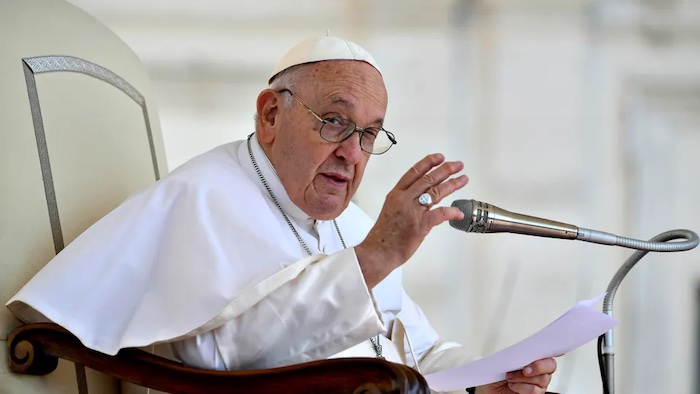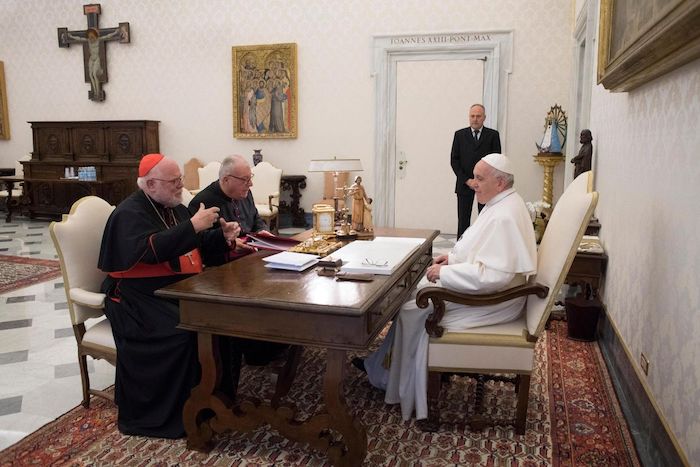— What if someone told you that you were unworthy of romantic love, but instead, God and the Church could provide all the love you need? You’d probably say that was ridiculous. Yet, there are at least four groups of people to whom the church is saying exactly that. For Singles Awareness Day, I want to focus on these groups, upon whom many in the Church want to impose singleness.

By Greg Smith
1. LGBTQ Folks
The first group are LGBTQ folks. Recently, the pope said that it’s not a crime to be gay, but gay sex is still a sin. Many Catholic and Protestant conservatives share this view. Some have finally come around to understanding that it’s not a choice to be gay. They have quit condemning people for having gay thoughts. But “doing the gay thing,” they say, is something else. So, they say you can be a Christian and be gay, but you can’t be a Christian and do gay.
A couple of years ago, a local church offered a discussion about how to love LGBTQ people. I was encouraged that they were even having the conversation, so I attended. Unfortunately, they came to the conclusion that I described above. Still, they wanted to be compassionate. They recognized the fact that human beings are made for love. So, since they believed that LGBTQ folks were created for celibacy, they said that God and the Church could provide all the love that they needed.
They encouraged the Church to offer fellowship groups for LGBTQ individuals. Straight families should invite gay friends to their homes for supper. In other words, the Church should fill in the gap. Christians should make up for the loss that a gay Christian would feel without ever being able to have sex, or a spouse, or children of their own.
Of course, church leaders realized that inviting gay people to fellowship groups to cure their loneliness is like bandaging a wound that the Church gave them. So they justified their statement by saying the Church already has other groups of people who are expected to live a life of celibacy. They insisted that the Church wasn’t asking gay folks to do anything that they weren’t asking of other groups.
2. Unmarried People
The second group is unmarried people. The pastor said, “For me, the only legitimate sexual partner is my wife. Before I was married, God expected me to be celibate. So that’s pretty much the same thing as asking gay folks to be celibate.” Except it isn’t.
The difference is that the Church says that people can (some say “should”) choose to marry. Thus, they can have a blessed and sanctioned sexual partner in their spouse. But congregations and denominations that refuse LGBTQ folks the right to marry deny them romantic and sexual expression for a lifetime.
Perhaps the Church should rethink its ban on premarital sex. This argument has been made by some. It’s not my purpose in this article to weigh in on that. But forbidding premarital sex isn’t the same as denying LGBTQ folks the right to romantic and sexual fulfillment. The first position says, “Not now, not yet.” The second says, “Not ever.”
3. Catholic Clergy
The third group is the Catholic clergy. Roman Catholic priests, monks, and nuns are asked to take a vow to abstain from all acts of sexuality. If priests can do it, Church leaders said, then LGBTQ people can do it too. There are two problems with that.
The first problem is that the church should never ask clergy to take a vow of celibacy, either. God created human beings with a sex drive. It isn’t natural to deny that sex drive your whole life. Denying people the right to sexual expression and romantic love does not make them more holy. It usually turns them into greater sinners.
Since Catholic clergy members are denied the right to marry, they are only left with the alternative of finding illicit outlets for their sexuality. Sex is a biological function that was not meant to be repressed. We have seen the results of clergy who are denied legitimate sexual and romantic relationships. They don’t suddenly become asexual. Instead, they simply get good at hiding their behavior.
The second problem is that Catholic clergy take their vow of celibacy voluntarily. When they enter the priesthood, monastery, or convent, they know what they’re signing up for. Nobody tells them that they are unworthy of sexual love. Nobody tells them that they are a different breed of person who was not created for procreation. Those who take a vow of celibacy realize that they have a right to find love, to marry, to start a family of their own. They simply choose a different path from that of sexuality, romantic love, and family.
But, when the church tells LGBTQ folks that they have to take a vow of celibacy, it’s not the same thing. Conservative churches deny LGBTQ folks their right to romantic happiness. In the case of clergy who take a vow of celibacy, they do that of their own free will. But the church imposes celibacy on gay people. To say, “Roman Catholic clergy takes vows of celibacy, so gay folks should be celibate too” is a false equivalency. One is voluntary—the other is not.
4. Divorcees
Many conservative churches still maintain that divorcees are not allowed to remarry unless their ex-spouse dies and that anyone who marries a divorced person commits adultery. (This is why some say King Charles’ coronation should be invalidated—because Charles and Diana divorced, and because Camilla’s ex-husband Andrew is still alive.) Most moderate to liberal Christians interpret Jesus’ stance on divorce loosely. But many conservative churches dictate that their members cannot remarry once they divorce.
Here’s the problem with a literal interpretation and enforcement of this: it makes divorce an unforgivable sin. Jesus talked about only one unforgivable sin—and this isn’t it. Yet, conservative churches stigmatize divorcees. They not only forbid divorcees from remarriage but sometimes from serving in ministry. Yet, if we believe that God is in the business of second chances, we should recognize that God can bless subsequent marriages. If we understand that God made us for romantic and sexual fulfillment, we should encourage people to find happiness and hope for their future.
We don’t tend to focus that much on divorce as a sin these days. If we did, we’d have to recognize our hypocrisy. If churches are going to be hard-nosed about forbidding gay marriage, then they should enforce this rule about divorcees. However, if they want to excuse divorcees and grant them the ability to remarry, then they need to recognize gay marriage as well. You can’t have it both ways. Instead of saying, “It’s okay for us to deny sex to gays because we deny it to divorcees as well,” we ought to relax about both.
A Cross to Bear?
So, we have four large groups of people to whom the church has denied the right to be sexual human beings: LGBTQ folks, unmarried people, Roman Catholic clergy, and divorcees. For unmarried people, this prohibition is temporary, as long as they marry eventually. For Catholic clergy, at least it’s a choice. For divorcees, churches are becoming more liberal. But for LGBTQ folks, the conservative Church denies them any choice. Conservative leaders insist that God gave LGBTQ people a sex drive just to make them deny it. “It’s their cross to bear,” these leaders say, grateful that they themselves don’t have to carry that load.
Celibacy isn’t what Jesus meant when he said that we should take up our cross, deny ourselves, and follow him. If this were so, then the church would ask everyone to be celibate. Sexuality and the need for romantic love are intrinsic to humanity. Certainly, there are some who identify as asexual—for these people, celibacy is consistent with who they are at their core. But for the majority of the planet—people with sex drives and a desire for romantic intimacy—the Church has no right to ban fulfillment to an entire group of people. What if the Church allowed us all to be faithful to who we are at our core?
Hey Church! Stop Denying People Romance!
Too often, the church tells people, “Don’t worry about love. Give yourself to faith, and love will find you.” As a trite saying, it sounds sweet. As a way of helping people not to perseverate on finding the right partner prematurely, it kind of makes sense. The right person will come at the right time, so to speak. But, in honor of Singleness Awareness Day (February 15), I have to say that if a person wants to stay single, that’s okay, too. While singleness may be a calling for some people, it isn’t something the Church has a right to impose on anyone. But as a way of denying people’s right to romance and sexuality, phrases like this are a crime against basic humanity. Only when the Church recognizes the rights to sexuality and romantic love for all types of people can we embrace the fullness of who God meant us to be.
Complete Article ↪HERE↩!





